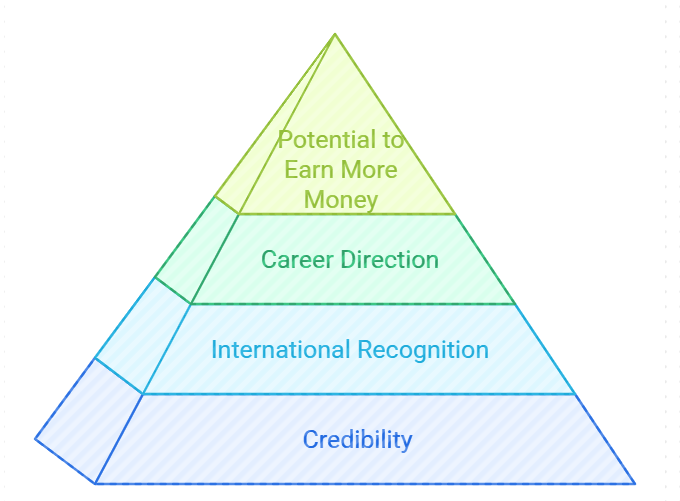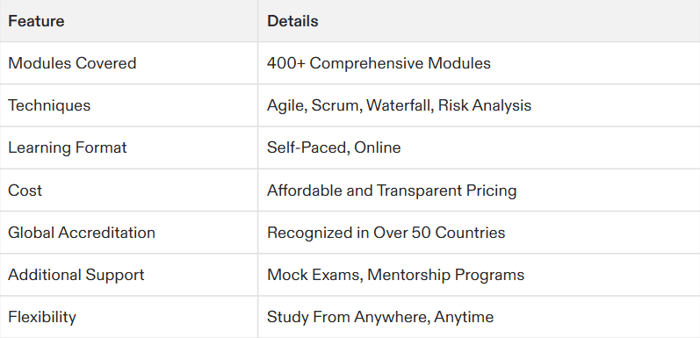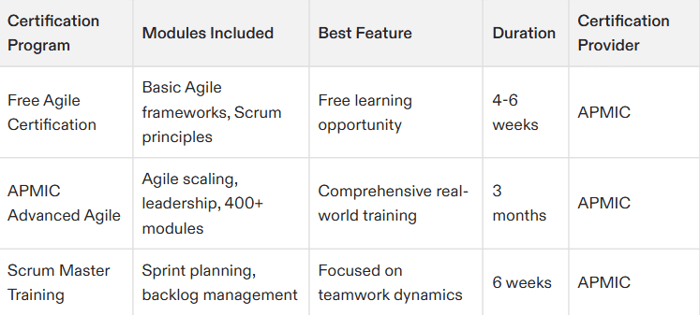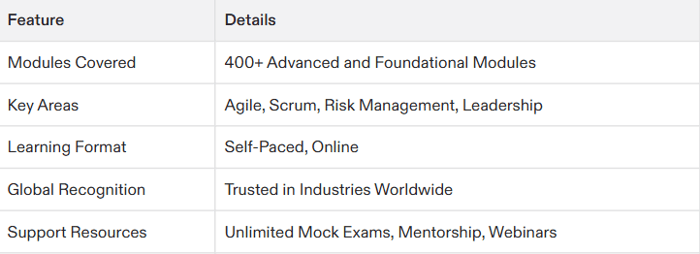Table of Contents
- Helpful Tips for Pursuing the Project Management Certification DePaul
- What is the Project Management Certification DePaul?
- Program Structure and Course Details
- Advanced Project Management Strategies
- How Does This Compare to Other Options?
- Final Thoughts
- FAQs About Project Management Certification DePaul
Project management is a key driver of success for businesses, projects, and processes. If you are planning to develop a strong career in this area, then getting a Project Management Certification DePaul University may just be the right decision you are making. DePaul University is a well-known university that provides excellent education and practical training for the certification program with varying intensities for beginners and professionals, respectively.
But what is this certification all about and how can it benefit you and your career? In this blog, I will explore with you the program structure, career benefits, and advanced modules of the certification I am offering.
Whether you're an aspiring project manager or looking to add new credentials to your resume, DePaul University's certification provides a powerful blend of theoretical knowledge and hands-on skills to set you apart.
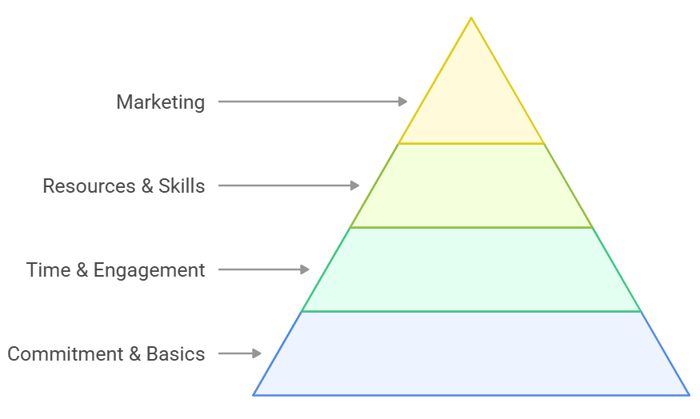
Helpful Tips for Pursuing the Project Management Certification DePaul
Understand the Commitment: Before enrolling, assess your schedule. The program typically takes 6-12 months, so you should be able to dedicate time to studying while balancing other responsibilities.
Brush Up on Basics: Familiarize yourself with project management terms and tools like Agile, Scrum, or Gantt Charts. You’ll feel more confident starting with some foundational knowledge.
Plan Your Time Wisely
Create a weekly study schedule to stay on track. DePaul offers flexible learning options (online, in-person, hybrid), so choose the format that best fits your life.Engage with Faculty and Peers
Take advantage of DePaul’s expert instructors and networking opportunities. Build connections with classmates—they’re often working professionals with industry insights.Leverage DePaul’s Resources
Utilize the university’s career services, like resume workshops and job fairs, to maximize your post-certification career opportunities.Focus on Practical Skills
Participate in hands-on projects and case studies. Employers value practical experience as much as theoretical knowledge.Market Your Certification
Once certified, showcase it on your LinkedIn profile and resume. Highlight your skills in risk assessment, budgeting, and Agile to attract potential employers.
This program is a strong step toward becoming a sought-after project management professional!
What is the Project Management Certification DePaul?
The Project Management Certification at DePaul is a specialized program designed to equip professionals with the tools, methodologies, and skills essential for managing complex projects across various industries. DePaul University ensures that students get exposure to practical frameworks like Agile, PMP® standards, Scrum, and others.
The program's robust methodology aligns with the expectations of the Accredited Project Management International Certification (APMIC), which emphasizes skill development alongside theoretical learning. For those considering other top-tier institutions, Harvard's Project Management Certification and Stanford's Project Management Certification offer equally valuable pathways.
Anyone with an eye on multi-dimensional growth in project management will find the program's offerings highly relevant.
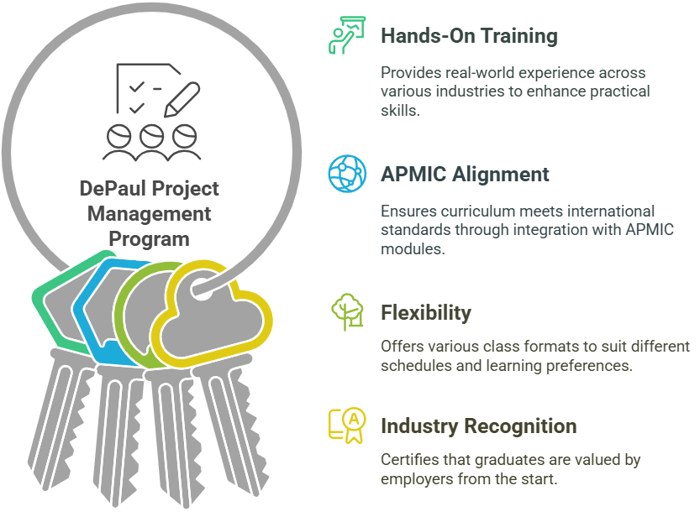
Key Features
Hands-On Training: Real-world exposure to managing projects in IT, construction, marketing, and manufacturing industries.
APMIC Alignment: The curriculum’s integration with APMIC's 400+ modules ensures you are trained to international project management standards.
Flexibility: A range of online, on-campus, and hybrid classes to accommodate various schedules.
Industry Recognition: Employers know that certified professionals from DePaul bring value from day one.
Whether you are an entry-level candidate or a mid-career switcher, this certification bridges the industry gap effectively.
Why Choose Project Management Certification DePaul?
Prestigious Institution: DePaul consistently ranks among top educational institutions in the Midwest.
Tailored Curriculum Design: Students learn frameworks like Agile and PMBOK® methodologies in their entirety.
Expert Faculty: Courses are delivered by industry leaders with decades of experience.
Networking Opportunities: Connect with peers, mentors, and industry stakeholders who enhance your career trajectory.
DePaul focuses on fostering not just project managers but organizational leaders who drive results through innovation, strategy, and precision.
Program Structure and Course Details
The Project Management Certification DePaul is structured around comprehensive modules that cover every stage of a project lifecycle. Here's what a typical layout can look like.
Project Management Fundamentals
Learn the basics of project initiation, scope management, and team dynamics.Risk Assessment and Budgeting
Understand financial management, risk mitigation, and budget controls.Agile Methodologies & Scrum Training
Practical training to implement Agile processes for product cycle efficiency.Program Management
Taking on larger portfolios and multi-million-dollar initiatives.Electives
Customize your certification with electives relevant to your industry.
Each component of the course is benchmarked to align with APMIC Certification, ensuring global standards.
Advanced Project Management Strategies
Beyond the basic principles of DePaul University offers advanced strategies to help professionals manage complex, large-scale projects effectively. These include:
Strategic Portfolio Management – How to align many projects with business goals to ensure maximum ROI and efficiency.
Change Management and Leadership - Learn about managing organizational change, leading teams through transitions, and implementing change management frameworks.
AI and Data-Driven Project Decision Making – Use cutting edge technology to analyze project data, identify risks, and optimize workflows for better decision making.
Stakeholder Communication and Conflict Resolution - Master the ability to communicate with key stakeholders clearly and to resolve conflicts to keep a project running without a hitch.
With these topics, the Project Management Certification at DePaul gets candidates ready for senior positions, to lead critical initiatives, and to support business success.
Career Benefits of Certification
Potential to Earn More Money: According to the PMP certification, certified project managers make 20-25% more than those who are not certified.
Career Direction: Since the skills are transferable across industries, you can create your path in IT, construction, healthcare and many other fields.
Credibility: Organizations are looking for certified people to head their projects as a result.
International Recognition: Once you graduate with a DePaul certification, you are sure that employers abroad will acknowledge your qualifications.
Industry Demand for Certified Project Managers
The demand for project managers is now at an all-time high and companies across industries are looking for certified professionals to lead critical initiatives. The Project Management Institute (PMI) has predicted that over the next 10 years, there will be a need for 25 million new project management professionals to meet the growing industry needs.
These professionals have higher job stability and growth as companies include formal training in Agile, Scrum, and PMP® standards as part of their criteria. As stated by PMI in its Talent Gap Report, project management professionals receive higher salaries than their counterparts who are not certified. You will be equipped with the right skills to fill these high-demand positions and remain competitive in the market through the Project Management Certification offered by DePaul.
How Does This Compare to Other Options?
DePaul stands out because it offers adaptability and world-class training. The alignment with APMIC certification standards ensures students get top-quality results.
Additionally, the flexibility of online, in-person, or hybrid options, combined with a focus on real-world case studies, makes the Project Management Certification DePaul the ultimate choice.
Table of APMIC Certification Contents

The APMIC certification encompasses 400+ modules, setting a benchmark for global project management excellence.
Final Thoughts
With so much to offer, the Project Management Certification DePaul is a worthwhile investment for those serious about advancing their careers. Its balance of hands-on experience, theoretical depth, and alignment with recognized global standards ensures you’re not just learning but excelling.
The path to becoming a certified project manager starts here. Make the leap—because the world of successful leadership is waiting for you.
FAQs About Project Management Certification DePaul
Who is this certification for?
This course is for professionals, recent graduates, and anyone looking to transition into project management roles.
What is the duration of the program?
The program is typically completed in 6–12 months, depending on the chosen pace.
Does the certification include Agile training?
Yes, Agile, Scrum, and other modern methodologies are thoroughly covered.
Is there financial aid available?
DePaul offers scholarships for eligible students and corporate partnership discounts to affiliated organizations.
How does this certification align with APMIC?
DePaul's curriculum is mapped to the APMIC's standards, meaning students will compete globally with comprehensive knowledge and skills.
How do I become eligible for this program?
Candidates typically require a bachelor’s degree. However, extensive work experience in related fields can also qualify.



